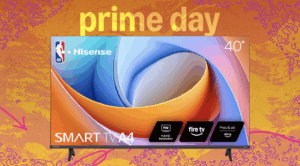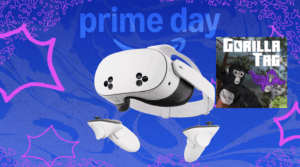
Apparently using Google Gemini to write a fan letter in the voice of a little girl doesn’t sit well with people.
Google has pulled its “Dear Sydney” ad after major backlash that criticized Google for misjudging how much the public values genuine human expression.
The ad features a father using the Google Gemini chatbot to help his daughter write a fan letter to Olympic track and field star Sydney McLaughlin-Levrone. “I’m pretty good with words,” says the father, “but this has to be just right.” Cue Gemini, and a fan letter written entirely by a bot that, being a bot, can’t possibly understand concepts like admiration, inspiration, or just the experience of being a human child.
“We believe that AI can be a great tool for enhancing human creativity, but can never replace it,” said a Google spokesperson in a statement to Mashable. “Our goal was to create an authentic story celebrating Team USA. It showcases a real-life track enthusiast and her father, and aims to show how the Gemini app can provide a starting point, thought starter, or early draft for someone looking for ideas for their writing.”
But given the negative reaction online, Google missed the mark. The ad’s message is offset by a recurrent theme in the generative AI era: companies have eagerly adopted generative AI in the hopes of attracting users. But in a classic case of a tech solution in search of a problem, they’ve sometimes repulsed consumers, and have struggled to find applications that prove genuinely useful. Earlier this week Meta scrapped its celebrity AI personas, while Taco Bell has expanded its AI voice automated ordering system despite McDonald’s failings with a similar experience.
Even if Gemini nailed the tone and successfully mimicked the tone and age-appropriate literacy of the little girl, people online were horrified by the premise of using AI to write a fan letter. “It is one of the most disturbing commercials I’ve ever seen,” posted Shelly Palmer, professor of advanced media at Syracuse University Newhouse School. “This is exactly what we do not want anyone to do with AI. Ever.”
“I cannot think of a less inspiring ad. What is even the point of sending that letter,” posted X user @chikkadee.
“Re: Google’s ‘Dear Sydney’ AI Ad – much like Apple’s Crush, the question we need to ask ourselves isn’t ‘what can AI/texhn do for us?'” wrote another user @Aerocles referring to a similarly tone-deaf ad from Apple that literally crushed creative tools. “But ‘what role do we want it to play in our lives?’ Just because AI can do something, doesn’t mean we want it to.”
Washington Post columnist Alexandra Petri was so infuriated that she wrote an entire column about it saying, “This ad makes me want to throw a sledgehammer into the television every time I see it.”
It’s hard to summarize all the ways the public feels Google’s ad fell short. Whether it’s coming under fire for implying that automated text is more valuable than children’s expression, or discouraging kids doing their own writing, or simply signaling to parents that this is a good use of generative AI, there are so many issues. But the Los Angeles Times‘s Ryan Faughnder encapsulated the overall mood pretty well in a post on X: “Turns out it’s really hard to market apocalyptic A.I. technology.”






